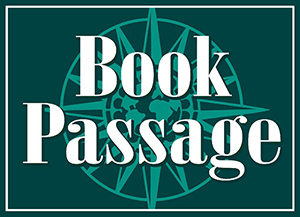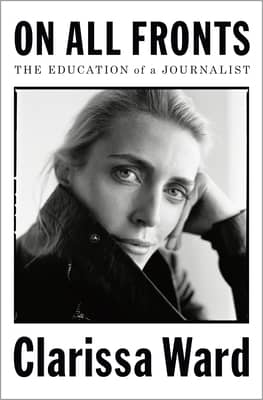Clarissa Ward
in conversation with Lisa Ling
Recorded Sunday, September 13, 2020
Share this event
Clarissa Ward in conversation with Lisa Ling
Share this with someone who loves books.
Clarissa Ward’s remarkable new memoir On All Fronts is the unforgettable story of an extraordinary journalist and a changing world.
Clarissa is CNN’s chief international correspondent. In her fifteen-year career spanning Fox, CBS, and ABC, she has reported from front lines across the world. Clarissa has won five Emmy Awards, two George Foster Peabody Awards, an Alfred I. duPont-Columbia University Award, two Edward R. Murrow Awards for distinguished journalism, honors from the Radio and Television Correspondents’ Association, the 2016 David Kaplan Award from the Overseas Press Club, and the Excellence in International Reporting Award from the International Center for Journalists. She graduated with distinction from Yale University, and in 2013 received an honorary doctor of letters degree from Middlebury College in Vermont. She lives in London.
Lisa Ling is the executive producer and host of This is Life with Lisa Ling, on CNN. For five seasons prior, Lisa executive produced and hosted Our America on OWN: the Oprah Winfrey Network. As the former field correspondent for The Oprah Winfrey Show and contributor to ABC News’ Nightline and National Geographic’s Explorer, Lisa has reported from dozens of countries, covering stories about gang rape in the Congo, bride burning in India, the Lord’s Resistance Army in Uganda and the Mara Salvatrucha (MS-13) gang in Central America, Lisa is the co-author of Mother, Daughter, Sister, Bride: Rituals of Womanhood and Somewhere Inside: One Sister’s Captivity in North Korea and the Other’s Fight to Bring Her Home, which she penned with her sister, Laura. She is also a co-founder of SecretSocietyofWomen.com, and a contributor to ivolunteer.org.
““Clarissa Ward is a reporter I have always admired – for her courage but also her clarity and her willingness to take risks to bring sometimes uncomfortable truths to light.
Her memoir is a reporter’s story – with all the grit and frustration and triumphs – but also a universal story of a tenacious young woman working in a hardscrabble profession who paved her own way with sheer hard work and a vision. Ward has reported diligently from many war zones, but her work in Syria will go down as a historical record of a country that the international community allowed to bleed.
Everyone with a conscience should read this book.”‘
—Janine di Giovanni, author of The Morning They Came for Us.
Get ready to join Clarissa in conversation, Sunday, September 13th.
In the meantime, we invite you to take a moment now to help shape this upcoming conversation.
Check out the list of questions submitted by other registered attendees, and then vote to support any that match your interests.
Feel free to add your own question. Then spread the word to make sure others have the chance to help move your question to the top of the shared list.


votes